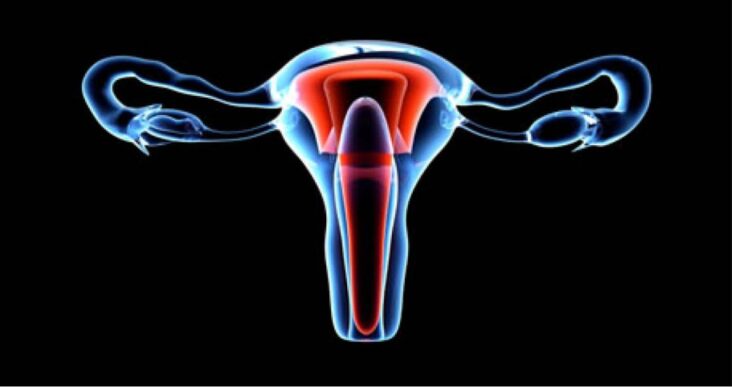
- Afrikaans
- Albanian – shqipe
- Arabic – العربية
- Armenian – Հայերէն
- Azerbaijani – azərbaycanca
- Basque – euskara
- Belarusian – беларуская
- Bengali – বাংলা
- Bulgarian – български
- Catalan – català
- Chinese – 中文(简体中文)
- Chinese – 中文 (繁體中文)
- Croatian – hrvatski
- Czech – čeština
- Danish – dansk
- Dutch – Nederlands
- English
- Esperanto – esperanto
- Estonian – eesti
- Filipino
- Finnish – suomi
- French – français
- Galician – galego
- Georgian – ქართული
- German – Deutsch
- Greek – Ελληνικά
- Gujarati – ગુજરાતી
- Haitian Creole – kreyòl ayisyen
- Hebrew – עברית
- Hindi – हिन्दी
- Hungarian – magyar
- Icelandic – íslenska
- Indonesian – Bahasa Indonesia
- Irish – Gaeilge
- Italian – italiano
- Japanese – 日本語
- Kannada – ಕನ್ನಡ
- Korean – 한국어
- Latin – Lingua Latina
- Latvian – latviešu
- Lithuanian – lietuvių
- Macedonian – македонски
- Malay – Bahasa Melayu
- Maltese – Malti
- Norwegian – norsk
- Persian – فارسی
- Polish – polski
- Portuguese – português
- Romanian – română
- Russian – русский
- Serbian – Српски
- Slovak – slovenčina
- Slovenian – slovenščina
- Spanish – español
- Swahili – Kiswahili
- Swedish – svenska
- Tamil – தமிழ்
- Telugu – తెలుగు
- Thai – ไทย
- Turkish – Türkçe
- Ukrainian – українська
- Urdu – اردو
- Vietnamese – Tiếng Việt
- Welsh – Cymraeg
- Yiddish – יידיש
Double-click
Select to translate
Every year, more than 20,000 women are diagnosed with ovarian cancer, according to the American Cancer Society (ACS). That’s less than one-tenth the number of women who are diagnosed with breast cancer each year. Ovarian cancer rates are highest in women in their early to mid-60s.
Ovarian cancer begins when the genes that regulate cell growth mutate and allow abnormal cells to thrive. These rogue cells multiply at a rapid rate and eventually form a tumour. Left untreated, ovarian cancer can spread to other areas of your body.
Although ovarian cancer is considered rare in women under 40, it’s important to know that women of all ages can develop ovarian cancer.
Only 19 per cent of women who discover they have ovarian cancer are diagnosed in the early stages. Diagnosing ovarian cancer can be more difficult because there are no routine tests to effectively screen for the disease. This is why we will be discussing some important ovarian cancer symptoms to watch out for.
1. Menstrual Changes
Although irregular periods are not necessarily a sign of ovarian cancer, a history of irregular cycles can increase your risk. Some women diagnosed with ovarian cancer report menstruating more frequently than once each month or note spotting between periods. If you are not yet menopausal and suddenly have an irregular cycle or more period pain than usual, you should consider scheduling an appointment with your gynaecologist. This is especially true if you are taking oral birth control. If you are post-menopausal, any unexpected bleeding should be investigated by your healthcare provider.
2. Changes in Appetite
Yes, there are many possible explanations for variations in your appetite. But if you have unexplained changes that cannot be explained by temporary digestive disturbances or stress, it’s important to bring your symptoms to the attention of your healthcare provider. Changes in appetite can be one of the first signs of ovarian cancer. Many women find they feel unusually full after eating a small amount of food. If you have ovarian cancer, you might find it difficult to finish even a small meal regardless of how hungry you felt before eating. Some women find eating causes nausea and vomiting.
3 Abdominal Bloating
There are lots of reasons you may feel bloated, including minor problems like eating gassy foods. But bloating can also be a symptom of ovarian cancer in some women.
Bloating is a common complaint noted by researchers investigating the signs of ovarian cancer. Before they are diagnosed, many women initially assume their abdominal distention is caused by age, fluid retention, or an unhealthy diet. The bloating caused by ovarian cancer can be mild or severe. Some women find they are bloating so pronounced they need to buy larger clothes. An expanded waistline can be caused by increasing tumour size or by fluid retention in the abdomen (ascites) experienced by people with liver disease or some types of cancer. Abdominal bloating may be accompanied by digestive disturbances or changes in appetite, but you can experience bloating or increased girth with or without abdominal discomfort.
4 Pelvic Pain
Ovarian cancer is often caught in later, more advanced stages because there are often few symptoms early on in the course of the disease. Unfortunately, late-stage ovarian cancer can cause pain and discomfort
Mild pelvic pain and pressure are common early symptoms of ovarian cancer. Pain that is severe could be a different kind of ovarian tumour symptom.
Ovarian tumours can cause the ovary to twist around the fallopian tube. This is known as torsion. It is more common with germ cell and stromal cell tumours.
When this happens, the blood vessels that bring blood to the ovary may be cut off. The lack of blood supply can cause severe pain, bleeding, and often infection.
5 Frequent Urination
Typically, when women experience urinary problems, such as pain when urinating or urgency, they frequently think it’s a urinary tract infection. Often, it is.
But bladder-related issues can also signal a gynecologic or reproductive problem, like ovarian cancer.
In the early stages of the disease, the growing tumour may crowd your bladder, making it feel full more often. Cancer can also press near your ureters, the tubes that carry urine from the kidneys to the bladder. This will lead to ovarian cancer symptoms like an urgent need to urinate, frequent urination, and pain in the bladder.
You may want to seek medical attention if these bladder problems last more than several days. Your doctor will make an accurate diagnosis and develop the right treatment plan for you.
6 Constipation or Upset Stomach
Constipation is one of the most common ovarian cancer symptoms. You should be particularly concerned if the initial measures you take do not relieve new constipation. Patients may also experience upset stomach, diarrhoea, and other digestive changes.
Gastrointestinal( GI)issues can be linked to everything from stress and anxiety to irritable bowel syndrome and ovarian cancer. When it comes to ovarian cancer, a common Gastrointestinal GI symptom is constipation.
It is important to pay attention to any changes in your bowel habits. Some gastrointestinal issues may occur as a result of the growing tumour placing pressure on nearby organs such as the bowel.
Pay attention to any changes in your bowel habits, Specifically, new constipation that is not relieved by any interventions can be a sign.
7 Difficulty Eating
A loss of appetite is a common ovarian cancer symptom.
In addition to a loss of appetite, early signs of ovarian cancer include feeling full quickly and having difficulty finishing even small meals.
In addition to making patients feel bloated, the fluid buildup associated with ovarian cancer can also contribute to nausea, decreased appetite, and a feeling of fullness even after a light meal. As such, these symptoms could be a red flag that there is a problem. Over time, eating less will result in loss of energy and weight loss. If this is a new symptom for you, contact your doctor immediately.
8 Unintentional Weight Loss
If you’ve lost more than five per cent of your body weight over the past six to twelve months without changes to your diet or exercise habits, it may be time to consult your physician. Nearly 40 per cent of people first diagnosed with cancer report unexplained weight loss. Women with advanced ovarian cancer may also experience cachexia, a syndrome resulting in weight loss and muscle wasting. Cachexia can be caused by substances manufactured by tumours or immune system response to the disease itself.
9 Menstrual Changes
Ovarian cancer affects the ovaries, which are female reproductive organs that sit on either side of the uterus, or womb. This type of cancer may develop from various cell types in the ovaries or fallopian tubes.
Although this is not a common sign, ovarian cancer can affect your menstrual periods. Some changes that you may notice when there is a tumour in your ovary are less frequent periods, heavier bleeding, irregular bleeding, or postmenopausal bleeding.
Understanding the symptoms of ovarian cancer can help a person get an early diagnosis. Missing a period can sometimes indicate ovarian cancer, but there are other more common symptoms.
10 Leg Swelling
Women worried about developing ovarian cancer might look for clues in unexpected or odd aches and pain they feel. It’s important to note that leg pain or swelling is not commonly associated with new ovarian cancer cases.
But One of the first signs of ovarian cancer could be fluid retention in your feet, ankles, or lower legs. Fluid accumulation could cause your legs to feel unusually heavy. As swelling progresses, your skin may look stretched or shiny. Swollen areas may remain indented after applying pressure, a condition is known as pitting edema. Although leg swelling can be caused by several unrelated health concerns, ovarian cancer is one of several cancer types known to cause edema. About 20 per cent of women diagnosed with ovarian cancer develop leg swelling.
conclusion
Although the many possible symptoms can be explained by other conditions not related to ovarian cancer, your symptoms should not be dismissed as unimportant. The many potential symptoms of ovarian cancer are often overlooked until the disease has progressed.
If you have unexplained symptoms, it’s wise to do a little research before calling your doctor. If you’re experiencing ovarian cancer symptoms, the worst thing to do is wait. Visit your doctor and get help
Are there other signs of ovarian cancer that we failed to mention? Let us know in the comment section and if you enjoyed reading this article, like and subscribe for more videos like this







GIPHY App Key not set. Please check settings